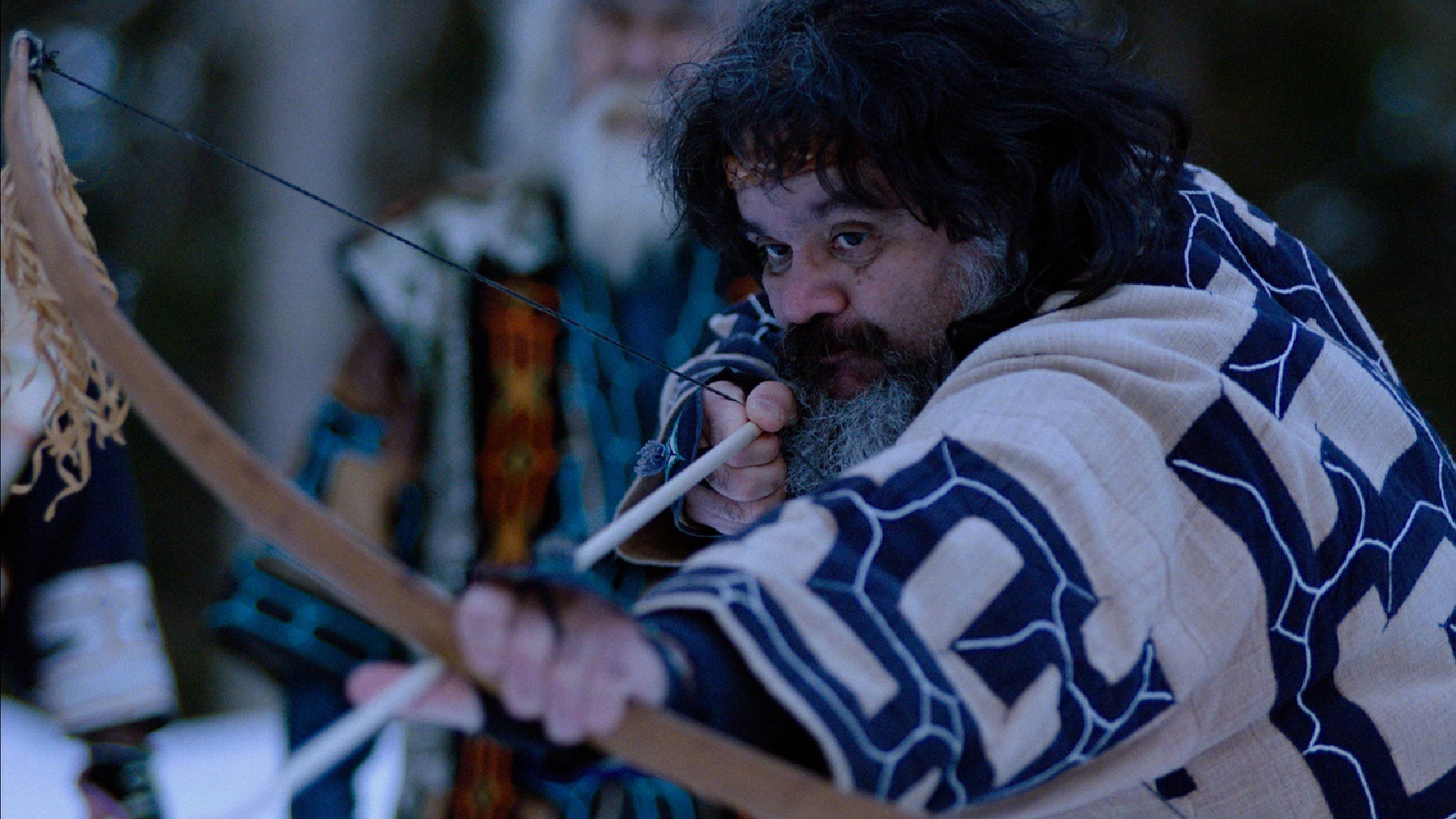Set in the remote village of Ainu, a UNESCO World Heritage site that has been transformed into a tourist destination filled with shops and performances, Ainu Mosir is a tender coming of age story about Kanto (Kanto Simokura) 14-year-old young boy grappling with his identity after the recent passing of his father. His traditions, including his language, has become a form of performance that grows contentious amongst the elders who navigate this tension in closed-door council meetings as they discuss reviving a sacred tradition that will undoubtedly horrify tourists from all over the world. Language is a primary tension throughout; while most everyone speaks Japanese, an effort is made to preserve the Ainu language which is taught in schools and to adults who have migrated to town to work in the shops–all while English announcements tout the cultural resources of the remote town, including its hot springs.
Written and directed by Takeshi Fukunaga, Ainu Mosir is remarkable in its observational simplicity while emotionally it comes up a bit short as it migrates into a slightly different mode. Beginning as a vibrant study of a mystical land (not unlike John Sayles’ Limbo), the film follows Kanto and his mother (Emi Shimokura) who make their living in a small shop in town. Family friend Debo, a local woodcarver who takes Kanto under his wing, teaches him to appreciate the village as the seasons change from winter to fall. They go hiking and fishing, and later he’s introduced to the village secret, Chibi, a beautiful white baby cub who Kanto agrees to feed.
Kanto’s friends include aspiring musicians who sing American hits like “Johnny B Goode,” hoping to one day form a bar band. They too are torn between the town’s cultural rituals (growing up speaking Japanese and not the native tongue) and in the move towards modernity, they seem to be unsure which part of the economy to embrace.
The looming cloud over the town is a cultural ritual which will see the slaughter of the bear in a dazzling yet controversial ceremony that will be held in private after a reporter snoops around. The tradition apparently has not been held in 49 years and it is only later that Kanto finds out that he’s become an unwilling participant in an ancient ritual in which everyone in the village takes care of Chibi.
A sensitive and nuanced portrait of modernity at odds with tradition, Ainu Mosir is a beautifully crafted film, crisply photographed by Sean Price Williams, who captures the natural allure of the remote village in the winter and fall. While I wish the pacing would slow down so that we could take in more of the village life (a Frederick Wiseman documentary, this is not), the film deliberately retains some of the mysteries of Ainu as seen the world through the eyes of Kanto. While the village raises him, he very much comes into his own as he develops his own moral compass.
Ainu Mosir was selected to screen at Tribeca Film Festival.

